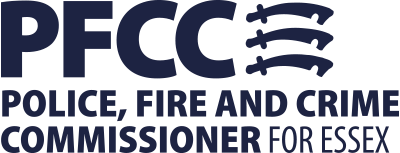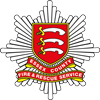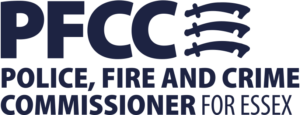Mental health triage project: working together to support our communities
Essex Police is working in partnership with the NHS in a county wide Street Triage programme, in order to help provide the best possible care to people with mental health issues.
Four street triage cars staffed by trained officers and mental health professionals from the South Essex NHS Partnership Trust (SEPT) and North Essex Partnership University NHS Foundation Trust (NEP), are now available in Essex operating seven days a week, between 6pm to 2am.
The four cars are based in Harlow, Colchester, Basildon and Rochford, where officers and mental health professionals attend incidents across the county if a person is thought to be in mental health crisis and in need of urgent support or intervention.
The person is then assessed by the officers and the professional, who then gets them the assistance they need, if appropriate to do so. This follows the success of a four month pilot which ran three nights a week. During this time 269 individuals were assessed, of which 11 were required to be detained under the Mental Health Act. Others were referred to appropriate services and given advice from the mental health professional present.
Officers have also found the triage service helpful in speaking with professionals to get specialist advice and support when dealing with people with mental health issues.
Sergeant Mark Fraser, who worked in setting up the scheme, said:
“Having a mental health professional present to give advice enables officers to have confidence in handling incidents sensitively and effectively”.
The scheme has already proved instrumental in reducing the number of people detained by the police under section 136 of the Mental Health Act unnecessarily across Essex by nearly a quarter, and has also ensured that those with vulnerabilities are given the care and support they need.
Sgt Fraser added: “The street triage scheme is all about getting people access to the support they need quickly and efficiently, which is why the pilot has been such a success. We hope to expand the programme onto other pathways in the future, for example, to refer people suffering with alcohol or drug addiction to agencies that can offer the help they require”.
Officers that are part of the Street Triage service have also found that the process has helped alleviate any distress that individuals may have.
Pc Piers Harley, an officer who works as part of the Street Triage team, said: “Although the person may have called the police themselves to report that they are in crisis, sometimes when police officers turn up, this can cause them to become very distressed. By having a professional with us who can assist in engaging the person, this can calm the situation and allow the person to co-operate with us, knowing that we want to help them. The other key benefit of the scheme is the process of looking after the patient is far speedier”.
The Office of the Police & Crime Commissioner for Essex invested nearly £50,000 into the triage project in 2014/15.
Lindsay Whitehouse, Deputy Police & Crime Commissioner for Essex, said: “The mental health triage project is an excellent example of how frontline agencies can work together to ensure those in crisis get the correct support they need as soon as possible. Police often come into contact with those suffering a mental health crisis but custody is rarely the right place for those people to be. This project has seen great success in reducing officers’ need to detain people under the Mental Health Act because individuals are receiving appropriate care more quickly.”









